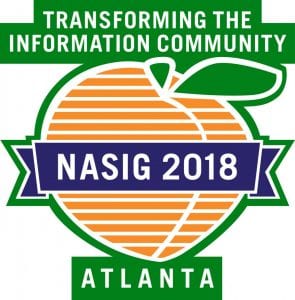For many libraries, budget concerns can lead to the very difficult decision to cancel subscriptions. Unlike print journals, electronic journals are not saved and stored by the library. Fortunately, the publisher will sometimes include a provision in the license indicating perpetual access to issues paid for by the library.
David Ferguson, Acquisitions Coordinator, attended the 2018 NASIG Annual Conference in Atlanta. One very timely presentation was a library’s attempt to document perpetual access to electronic journals, after they have been cancelled.
Albertsons Library at Boise State University undertook a project to document all the journals that they held post-cancellation access (PCA) rights to.
They started by looking at the most recently purchased titles and worked backwards in time, focusing on one publisher’s journals package.
Some key takeaways from their experience:
- Document, document, document. Have procedures in place to document your PCA.
- Log progress so there is a record of why you made decisions at the time.
- Document even if the resource is open access because open access may go away.
- Embed holdings information in bibliographic record so that it doesn’t disappear. Make it easy to find and access by all library staff.
